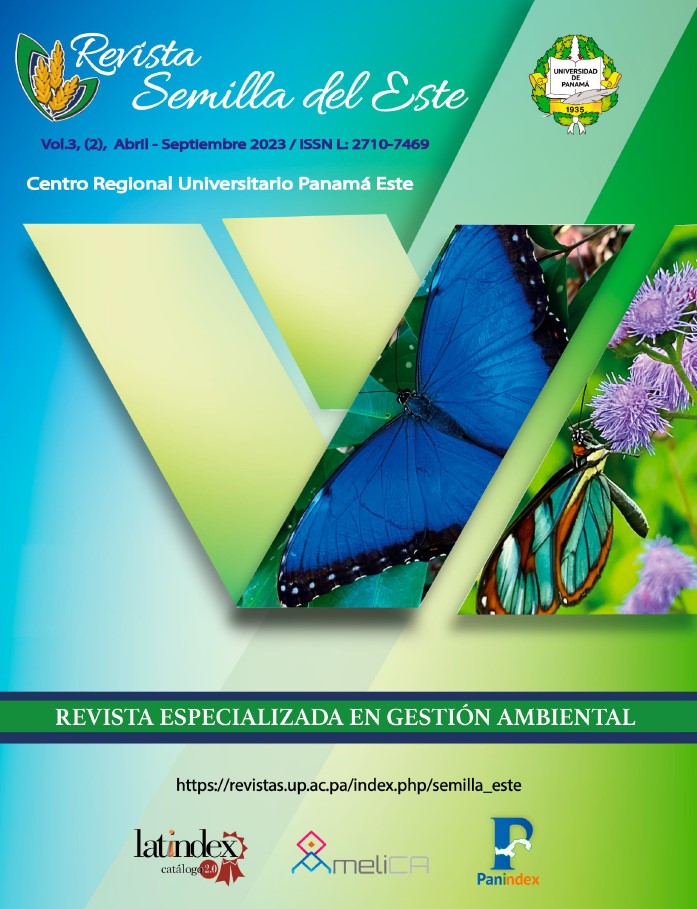


This work is licensed under a Creative Commons Attribution-NonCommercial-ShareAlike 4.0 International License.
The aim of this study was to evaluate different chemical control alternatives for potato tuber moths Phthorimaea operculella (Zeller, 1873) and Tecia solanivora (Povolný, 1973) (Lepidoptera: Gelechiidae), in potato seed stored in Tierras Altas, Chiriquí, Panamá. For this, in Cerro Punta (8°50'35.54” N 82°33'14.88” W), a randomized complete block design was established, with four repetitions and five treatments, recommended by local farmers, which were: T1 = Witness; T2 = chlorpyrifos; T3 = bifenthrin + imidacloprid; T4 = indoxacarb; T5 = terbufos. Each experimental unit consisted of a healthy tuber. The treatments were applied, according to the recommended dose and using personal protective equipment. After 15 days, the severity of the affectation by the moth in each experimental unit was evaluated, on a scale of 0 to 2, and the data were logarithmically transformed for the corresponding statistical analysis. According to the results, no significant differences were found between the evaluated treatments (p = 0.35); however, with T3 and T5, no tuber damage was found, which would suggest that these active ingredients are appropriate for moth control during storage. It is recommended to continue with these investigations, to establish adequate doses and include other products of a microbiological nature, in substitution of pesticides.